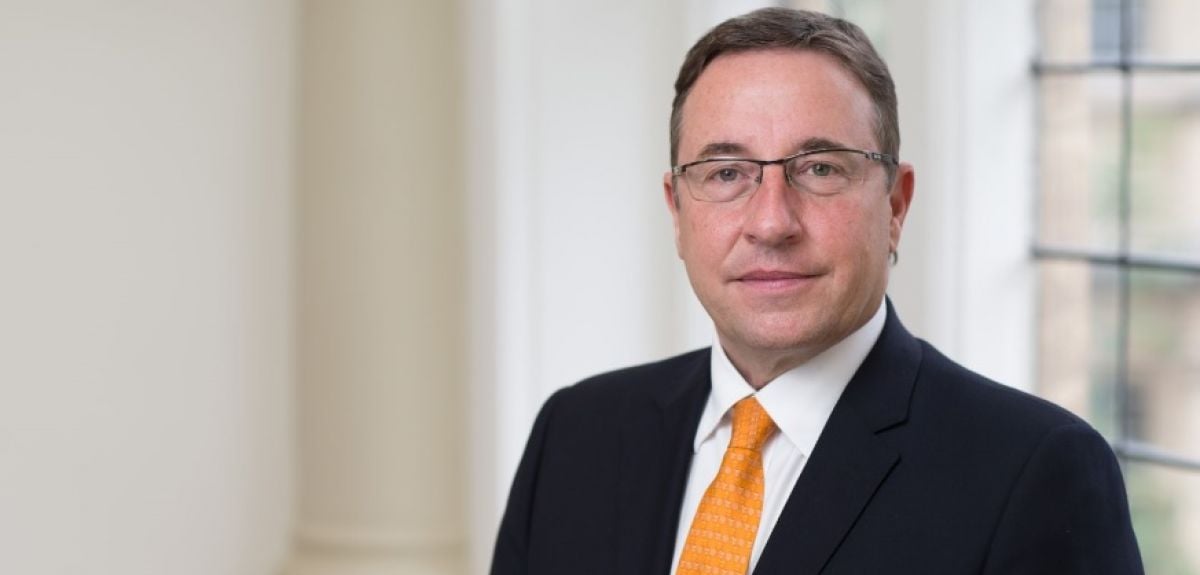
Oxford Martin School Director to lead UN Development Programme
Oxford Martin School Director Achim Steiner is to take up a pivotal role with the United Nations, leading its drive to eradicate poverty worldwide.
Mr Steiner, also a Professorial Fellow at Balliol College, has been appointed Administrator of the United Nations Development Programme (UNDP), following his nomination by UN Secretary-General António Guterres and approval by the United Nations General Assembly.
The Programme, which has a budget of US$5 billion, works in more than 170 countries and territories to support sustainable development and democratic governance, and eradicate poverty. It is one of the world’s largest multi-lateral development agencies, with 8,000 staff and more than 4,700 projects worldwide. It also administers the United Nations Volunteers (UNV) programme, with almost 7,000 volunteers deployed across the world.
UNDP helps countries develop the policies, leadership and institutions which can sustain their development and strengthen the foundations of peace. A key responsibility for Mr Steiner’s new post, which is at UN Under-Secretary-General level, will be the UN’s new 2030 Agenda for Sustainable Development, which has at its core the Sustainable Development Goals.
The work of the Oxford Martin School, which Mr Steiner has led since 2016, addresses many issues central to the UNDP’s agenda. The School, a leading research institution within the University of Oxford, brings together researchers from different fields to tackle a wide range of global challenges, such as food security, climate change, inequality and the future of work. Underpinning all of its research is the need to translate academic excellence into impact, from innovations in science, medicine and technology through to providing expert advice and policy recommendations.
Mr Steiner said: “The opportunity to lead UNDP is a tremendous responsibility, particularly with the priority given by member states to delivery of Agenda 2030 for Sustainable Development, which will be a key platform for addressing global priorities. We live in a time of significant challenges for international relations, for development finance and the environment and I believe that with Secretary-General Gutteres and his team, the United Nations has a vital role to play in the field of sustainable development. I am honoured to have been invited to lead UNDP as part of this effort.
“My experience at the Oxford Martin School is directly relevant to many of the challenges we face. The School was created with a specific mandate from its founder to address the great challenges of the 21st Century. At Oxford, I have gained a deep appreciation of the vital contribution that cutting-edge research can make to tackling pressing questions about global issues such as the future of work, disease epidemics and the implications of emerging digital technologies and artificial intelligence, to name but a few.”
Professor Roger Goodman, Head of the Social Sciences Division and Chair of the Oxford Martin School Management Committee, said: “While we will be very sorry to lose Achim Steiner from his position as the Director of the Oxford Martin School, we are immensely proud of his appointment to run UNDP. His appointment perfectly reflects the outward-looking, development-oriented work of the School and the impact it is already having on multiple areas of scientific, medical and social issues and we look forward to continuing to work with him and his colleagues in UNDP in the future. He leaves the School in a very strong state and we wish him all the best in his new role.”
Mr Steiner’s career has spanned economic development, international relations and global diplomacy. Prior to taking up his post at the Oxford Martin School, he was Executive Director of the United Nations Environment Programme where he led a number of major initiatives on the green economy, finance, energy and resource management.
An announcement regarding the date of the commencement of Mr Steiner’s role at UNDP will be made in due course.
 Expert Comment: Is an under-16 social media ban the right course?
Expert Comment: Is an under-16 social media ban the right course?
 ADHD medication use rises sharply across Europe, driven by growth among adults
ADHD medication use rises sharply across Europe, driven by growth among adults